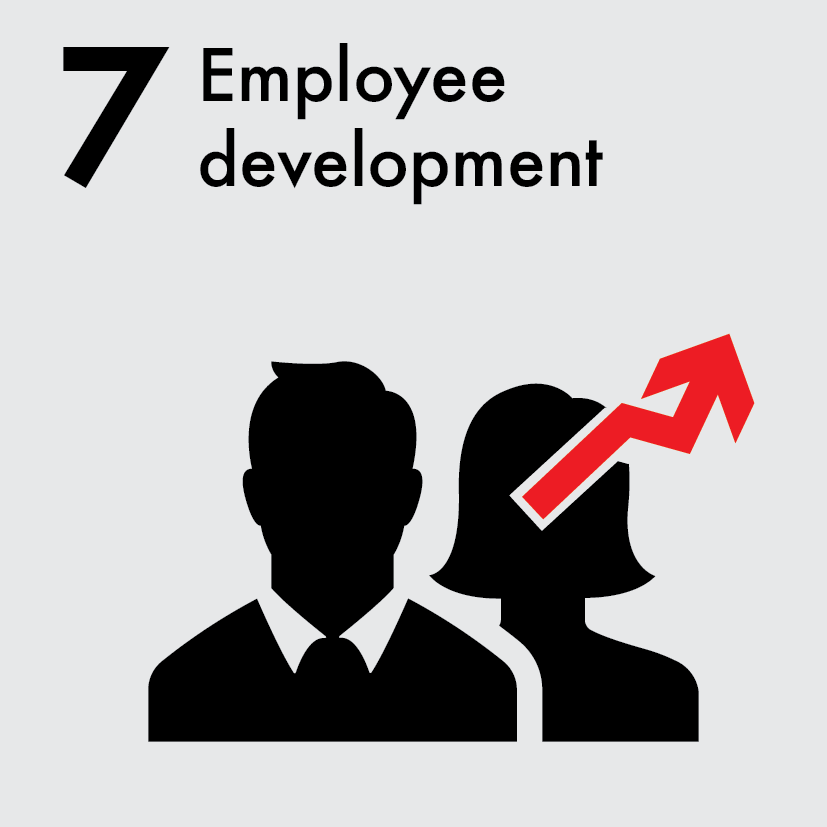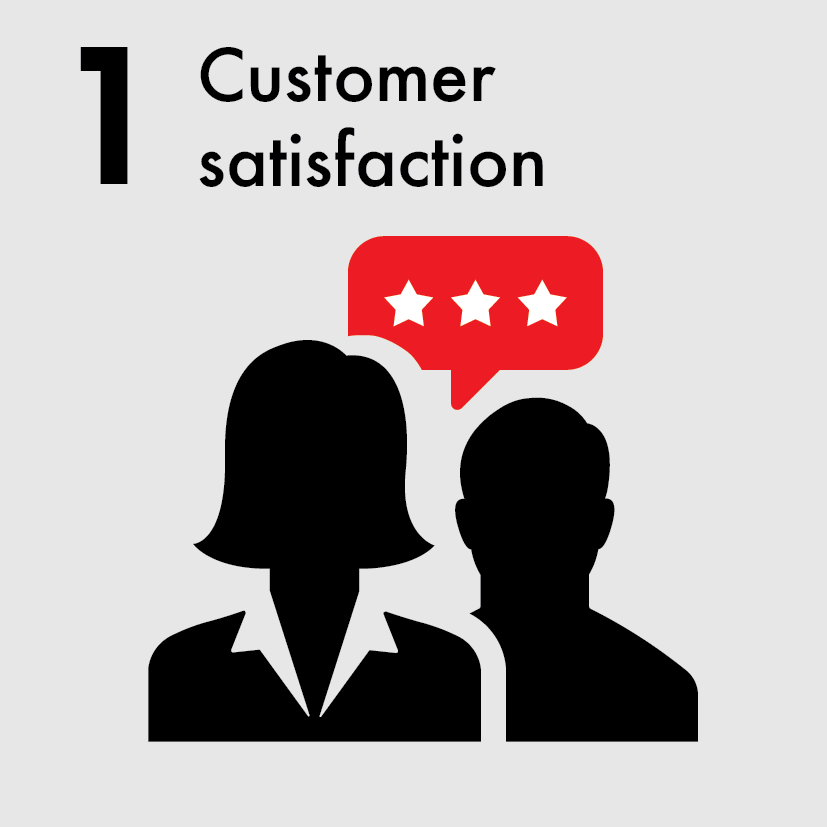What we can do better
Although Q-Park strives to improve its performance in all areas of its operations, sometimes things may still go wrong or the initiatives taken may not have the desired effect. This section summarises the most important aspects in 2020 that did not go as expected and which need to be looked at carefully in the future.
Training employees

At Q-Park we consider employee training and education to be very important, as our stakeholders do too.
We therefore include training in our HRM policy, and this is why we train our staff particularly in personal safety, conflict management, security, cyber security, ethics, and anti-corruption.
We aim to give these training courses regularly in all our countries. However, due to the coronavirus pandemic the focus was set on crisis management, develop the company and our position in the market. Most training courses, including e-learning options, will resume in the coming years.
Employee satisfaction
We conducted our tri-annual international employee satisfaction survey in 2016 and decided not to conduct an international employee satisfaction survey in future years. Instead, we will conduct a localised survey in each country in which we operate. We will analyse the results per country and draw up and monitor action plans where relevant.
HRM data
Our centralised back-office systems are an excellent source of relevant data and most of the data shared in this report has been retrieved from these sources. With regard to employee related KPIs, we gather data from country specific sources. These sources are more efficient and effective in serving both country specific needs as groupwide consolidated needs.
There are however some differences in registering training efforts, work-related incidents and lost days. This needs our attention in the coming years, allowing for improved data validation and comparability.
External verification
External verification increases the confidence stakeholders have in our accountability and has a disciplining effect on our internal organisation. But external verification also entails extra time and costs. In the past years we have worked hard to standardise the reporting process and the source and structure of the data used for reporting can easily be checked for completeness and reliability.
The whole process of CSR information gathering is therefore already prepared for future external verification against the quality standards our stakeholders expect.
Data validation
As previously stated, our back-office systems are an excellent source of relevant data, however, it may occur that data is incorrect or incomplete. For example:
Q-Park France is not yet fully integrated in our back-office systems meaning that relevant data had to be retrieved from different sources. This issue will be resolved in 2021.
Manual corrections had to be made on the number of EV charging points and dedicated hospital parking facilities. Over the coming years, we intend to select significant KPIs to be thoroughly cross-checked and where necessary, we will support this effort with a data registration and validation process.
Customer satisfaction

Customer satisfaction is our highest-ranking material topic and to date we log progress by using country-specific research, findings and focus points.
Each group operating company has its own customer satisfaction programme, as cultures and target audiences as well as our range of services differ per market.
In the next few years we intend to focus on similarities in the group as well as key aspects which have the highest impact on either decreasing customer dissatisfaction or increasing customer satisfaction – in a variety of customer groups (short-stay motorists, pre-bookers, season ticket holders and key accounts).
A Customer Satisfaction Programme will enable us to:
focus on what works and what needs attention;
establish a balanced scorecard, with Goals, Critical Success Factors (CSFs) and Key Performance Indicators (KPIs) to address issues and monitor progress.
We may also consider including other commercial stakeholders such as:
Direct and indirect sales channels:
Customer Group Partners
Affiliate Partners
Purpose Partners
Asset Portfolio Partners:
Public Landlords
Private Landlords
Project Developers
Goal setting
The last time we established and published future-oriented goals and our achievements towards reaching these goals was in 2017. We had set targets for multiple KPIs to be achieved by 2020. Yet, due to the acquisition of Q-Park in the same year, the need to focus on our transformation programme, centralising ICT operations in 2018 and the disposal of our Nordics business in 2019 – CSR goal-setting for the medium term was pushed back.
We intend to define future-oriented goals in 2021, for the short-term as well projecting a longer-term perspective. To monitor and report our progress, specific targets will be set for selected KPIs.
